Raising chickens in your backyard can be a rewarding venture, offering fresh eggs, pest control, and even companionship. Before starting, consider essential factors like local regulations, coop design for safety and comfort, suitable breeds for your climate, and proper nutrition and healthcare. Planning for space, predator protection, and daily care routines will set a strong foundation for a successful and enjoyable experience with your feathered friends.
Why Raise Chickens?
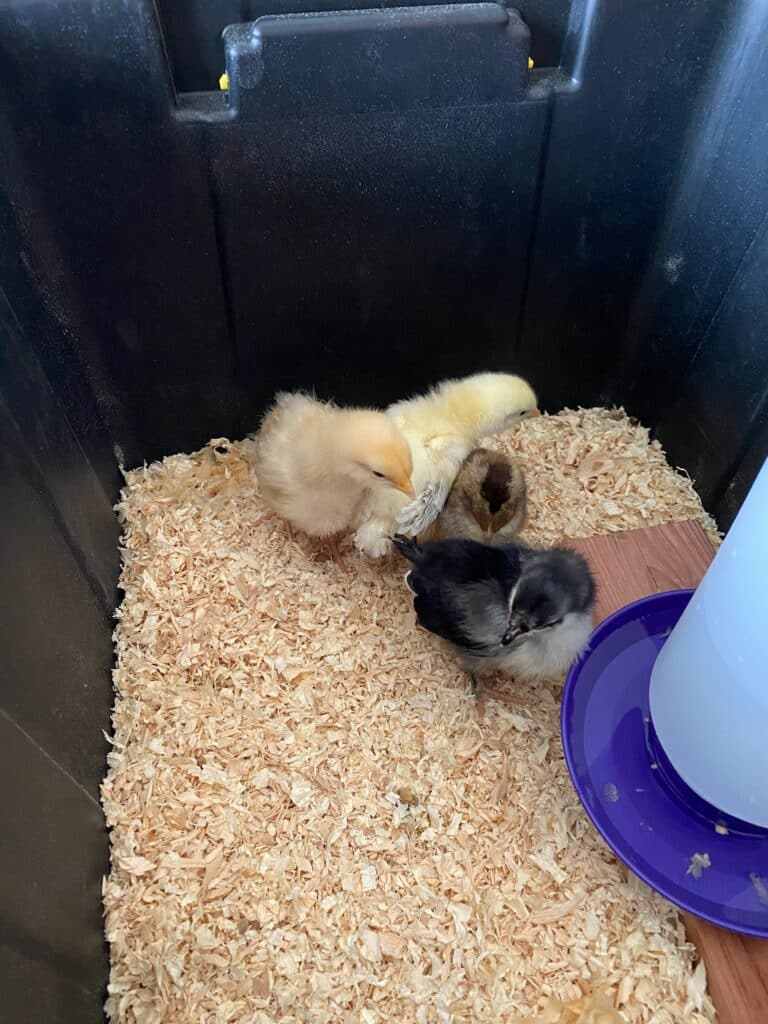
Beyond the appeal of fresh, delicious eggs, home-raised chickens offer a range of benefits that enhance both culinary experiences and gardening endeavors. The joy of collecting eggs each morning adds a delightful ritual to daily life, connecting you more closely with your food source. Moreover, the nutritional quality of these eggs can be noticeably superior, often containing higher levels of omega-3 fatty acids and vitamins compared to commercially produced eggs.
In the garden, chickens act as natural pest controllers, eagerly consuming insects and even small rodents that can damage plants. Their foraging behavior not only helps manage pests but also aerates and fertilizes the soil. Through scratching and manure deposition, promoting healthier plant growth. This symbiotic relationship between chickens and gardens fosters a more sustainable and integrated approach to gardening, reducing the need for chemical pesticides and synthetic fertilizers.
Additionally, raising chickens can be a rewarding educational experience for families. Providing opportunities to teach children about animal care, biology, and the cycle of life. Chickens are also known for their curious and social nature, often becoming beloved pets with distinct personalities that can bring joy and companionship to their owners.
Overall, integrating chickens into backyard living offers numerous advantages. From enhancing food quality and garden productivity to fostering a deeper connection with nature and promoting sustainable practices. Whether you’re a novice or experienced gardener, the addition of chickens can enrich your lifestyle in meaningful and practical ways.
The benefits of raising your own egg-laying chickens are plentiful:
Food Security: Enjoy the satisfaction of providing your family with fresh, nutritious eggs from well-treated chickens.
Self-Reliance: Reduce your dependence on store-bought eggs and take the first step towards food independence.
Cost Savings: Offset grocery expenses by raising your own eggs, and potentially generate income by selling surplus eggs or chicks.
Hatching Potential: Explore the possibility of hatching chicks for personal use or for sale, adding another dimension to your homesteading venture.
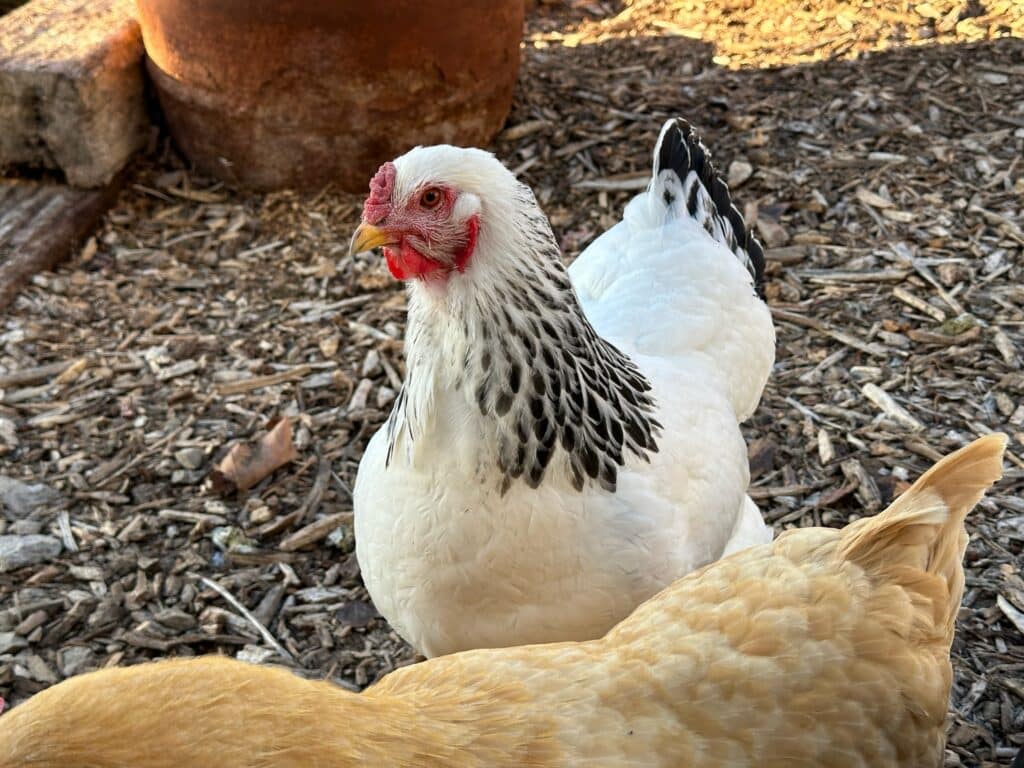
Things to Consider Before Getting Chickens
Before you bring home your feathered friends, there are a few key considerations:
1. Check Local Regulations: Ensure that raising chickens is permitted in your area. And if there are any restrictions on the number of chickens you can keep.
2. Space Requirements: You’ll need adequate space for a chicken coop or henhouse, complete with nesting boxes, roosting areas, and feeders.
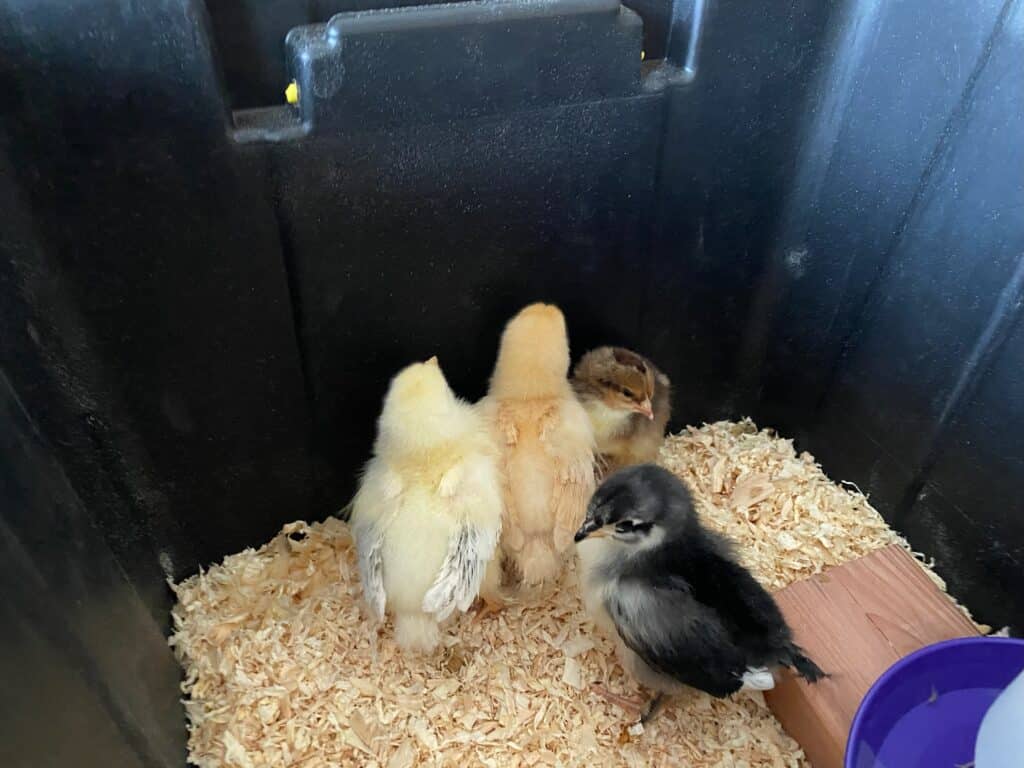
3. Cost of Upkeep: Factor in the cost of chicken feed, bedding, and any necessary equipment. Additionally, budget for ongoing maintenance and care expenses.
4. Time Commitment: Raising chickens requires daily care, including feeding, watering, and cleaning. Be prepared to invest time in their upkeep.
5. Vacation Plans: Consider how you’ll care for your chickens if you go on vacation. You’ll need a reliable chicken-sitter to ensure their well-being in your absence.
Flock Size and Space Requirements
When determining the size of your flock and space requirements, keep the following in mind:
– Flock Size: Aim to start with three to six chickens. This allows for a steady supply of eggs without overcrowding.
– Space Needs: Each chicken requires a minimum of 3 square feet of indoor space and 8-10 square feet of outdoor space. More space leads to happier and healthier chickens.
Start-Up Costs of Raising Chickens
Starting a chicken farm incurs initial expenses, including:
– Coop and Run: Expect to spend at least $300 on materials for a coop and outdoor run. If you require skilled labor, factor in additional costs.
– Overall Budget: Plan to invest between $500 and $700 initially. Depending on the size of your flock and the scale of your setup.
Gardening with Chickens
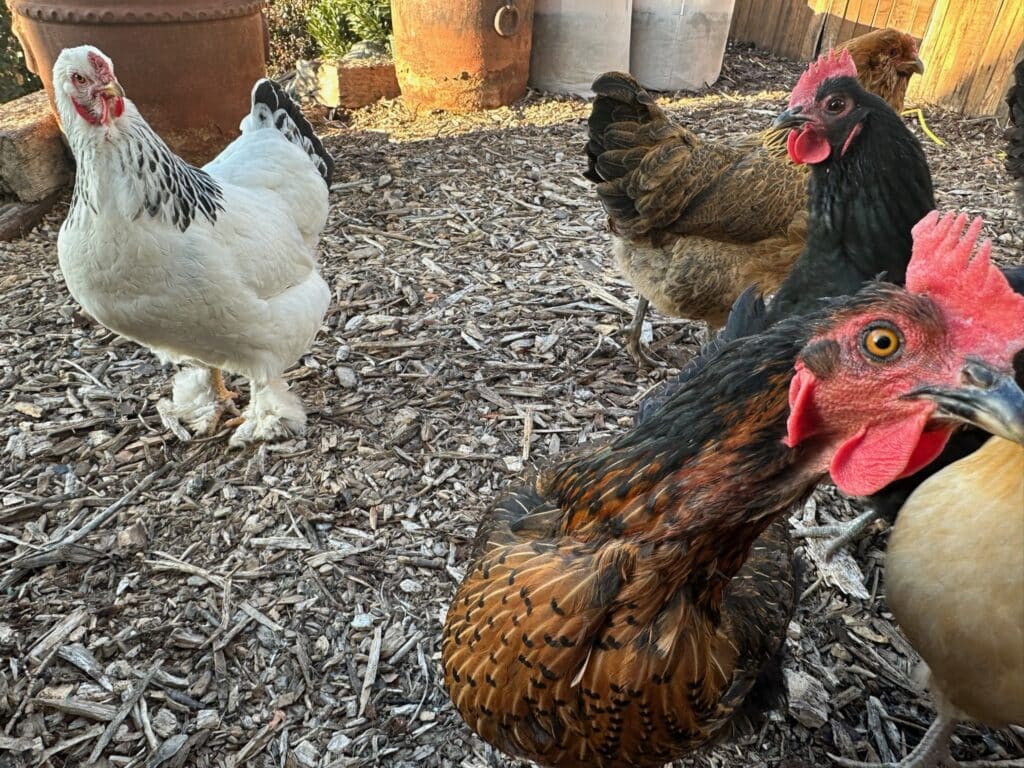
Chickens can be valuable allies in the garden, assisting with pest control and providing nutrient-rich manure for composting. Consider letting your chickens roam in the garden during the offseason to help with cleanup and soil maintenance.
Welcome to a deep dive into the world of raising backyard egg-laying chickens! Whether you’re new to homesteading or looking to expand your flock. This comprehensive guide will help you navigate the ins and outs of chicken care with ease.
Be Prepared
“Beware of ‘chicken math.’ A phenomenon where the initial allure of a few chickens quickly multiplies into a larger flock than originally planned. To mitigate this, it’s crucial to prepare meticulously before starting your chicken-raising journey. Begin by defining your goals and limits clearly, considering factors like space, time commitment, and local regulations. Research breeds suited to your climate and desired egg production levels to avoid impulse additions. Establish a well-thought-out coop and run setup that accommodates your projected flock size, ensuring adequate space per bird. By planning thoughtfully and sticking to your initial plans. You can prevent overwhelm and foster a successful and enjoyable experience with your backyard chickens.”
Biosecurity
Maintain biosecurity measures to safeguard your flock from potential diseases and infections. Vigilance in sourcing chickens from trusted sources and quarantine procedures can prevent setbacks and ensure the health of your birds.
Raising Chickens is Easy
Chickens are widely regarded as the perfect entry point into homesteading, offering a manageable level of care and numerous benefits. Providing them with essential necessities ensures their health and productivity. A well-constructed shelter protects them from the elements and predators. While designated roosting areas and comfortable nesting boxes encourage natural behaviors and egg-laying. Access to fresh water and balanced nutrition through proper feeding not only sustains their well-being but also enhances egg production. These elements, coupled with their natural foraging instincts. Make chickens invaluable not just for their eggs but also for their role in sustainable living and maintaining a thriving backyard ecosystem.
Shelter Options
Choose between a mobile chicken coop for flexibility or a static coop with deep litter bedding for colder climates. Both options offer advantages depending on your specific needs and preferences.
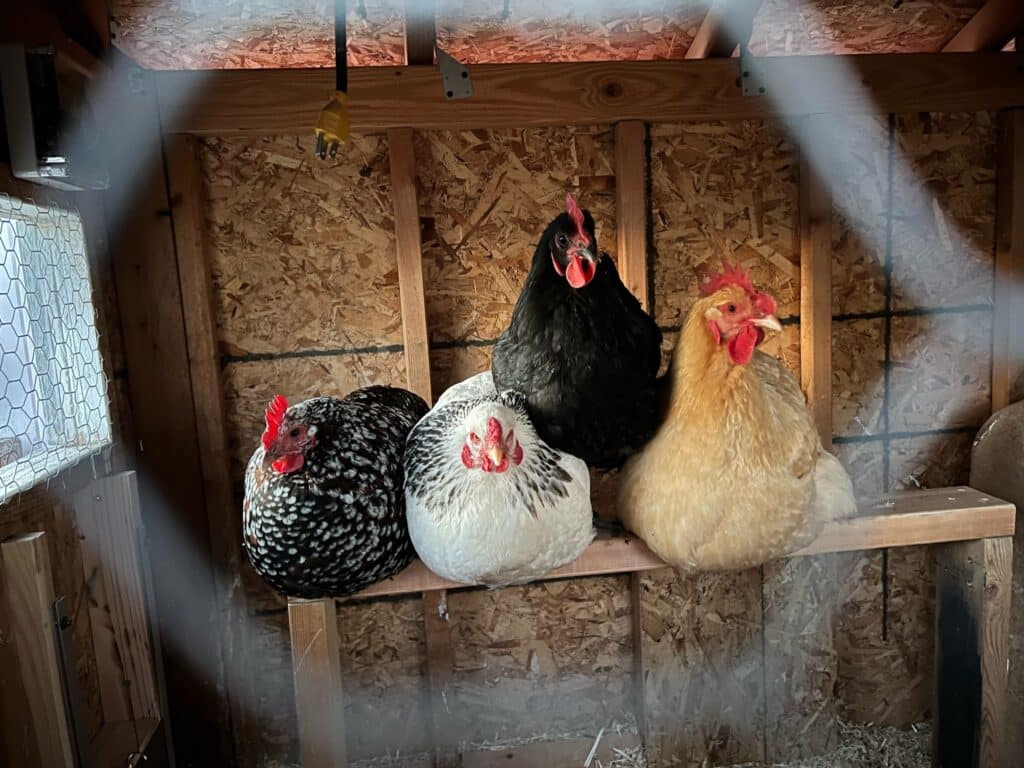
Protection Measures
Creating a predator-proof coop is paramount for ensuring the safety and well-being of your chickens. Implementing robust measures such as sturdy fencing or durable netting fortifies their environment against potential threats from predators. By meticulously securing the perimeter of the coop and any outdoor areas where the chickens roam. You provide them with a safe haven to thrive without the constant fear of attacks. Additionally, incorporating features like buried wire mesh or predator-proof locks on doors further enhances the security of their living space. Offering peace of mind to both homesteaders and their feathered companions. Prioritizing these precautions not only safeguards the chickens but also upholds the principles of responsible animal husbandry. Fostering a harmonious coexistence between humans and nature on the homestead.
Space Considerations
Provide adequate living space for your chickens. Taking into account factors such as coop size, outdoor roaming area, and roosting space. Tailor your setup to accommodate the needs of your flock and your property.
Water and Feed Requirements
Consistently providing clean water and nutritious feed is essential for maintaining the health and egg-laying productivity of your chickens. Regularly monitoring their diet allows you to adjust and supplement as needed. Ensuring they receive a balanced nutrition profile that supports their overall well-being. Fresh water should be readily available at all times. While a well-rounded diet rich in protein, vitamins, and minerals supports healthy egg production and strong immune systems. This attention to their nutritional needs not only enhances their physical health but also contributes to the quality of eggs they produce. Making it a fundamental aspect of responsible backyard chicken care. By prioritizing these aspects of their care regimen, you help your flock thrive and contribute positively to your homesteading efforts.
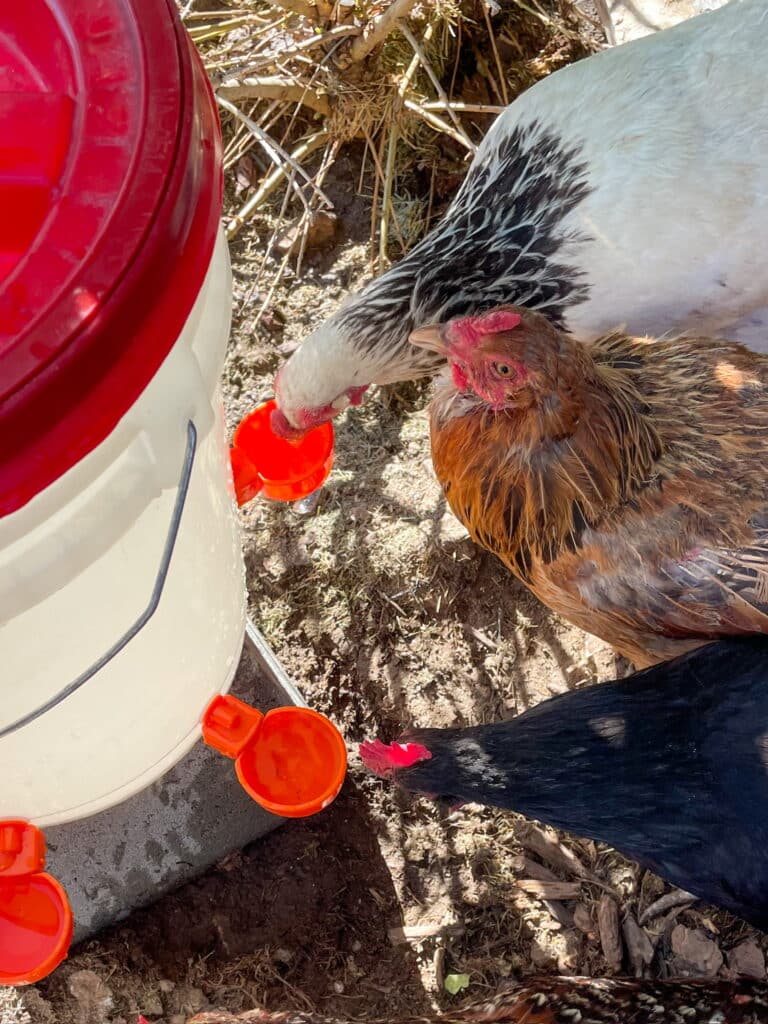
Supplements and Health Maintenance
Address specific health concerns such as calcium deficiency with supplements like crushed eggshells or commercial oyster shells. Incorporate dust baths and protein-rich diets during molting periods to support feather regrowth and overall well-being.
Understanding Breeds
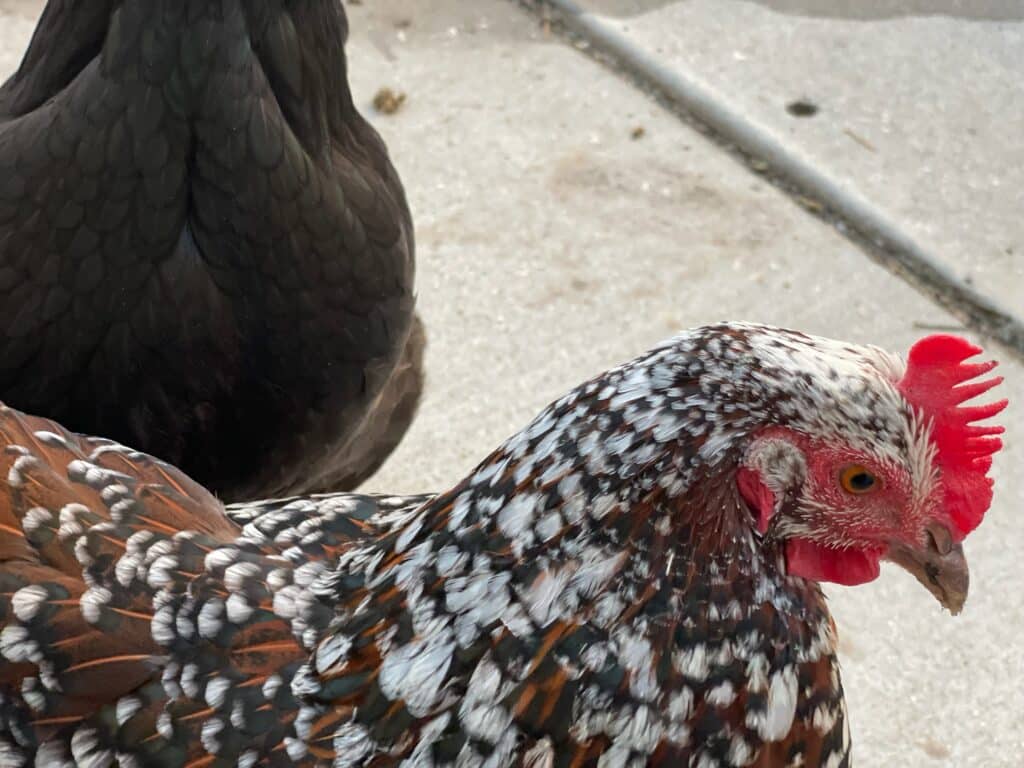
Selecting chicken breeds that align with your specific goals is crucial for successful backyard poultry keeping. Factors such as temperament, adaptability to local climates, and desired egg-laying frequency should also be considered to ensure your chosen breeds thrive in their environment and meet your expectations for sustainability and productivity.
Enjoy the superior quality of homegrown eggs, influenced by factors such as diet and living conditions. Which often result in richer flavors and nutritional benefits compared to store-bought eggs. Adjust your flock size based on your family’s egg consumption and seasonal variations in egg production to maintain a sustainable balance between chicken care and egg availability throughout the year.
Raising backyard egg-laying chickens is a rewarding and accessible endeavor for homesteaders of all levels. By following these guidelines and best practices. You can create a thriving flock that provides fresh eggs and enriches your homesteading experience. Happy chicken-keeping!
Raising chickens is a rewarding endeavor that offers fresh eggs, pest control, and a connection to nature. By considering factors like space, regulations, and costs, you can set yourself up for success in your backyard chicken farm.